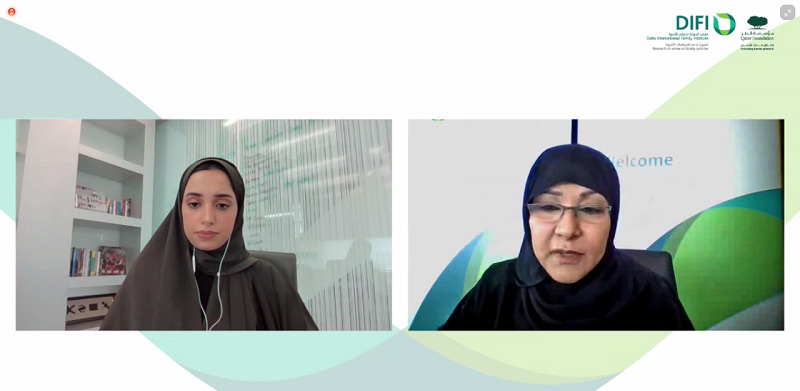
Open dialogue can help create healthier marriages, stronger families, and more stable communities, according to relationship specialists who spoke on the final day of Doha International Family Institute’s conference on marriage. Featuring thought leaders, policymakers, social science specialists, researchers, and representatives of non-governmental organisations, civil society, and young people, the global conference — titled Marriage: Formation and Constituents of Stability — underscored various issues that challenge marital stability and called for policies and programmes to prepare young people for marriage.
The discussions on the last day of Doha International Family Institute’s (DIFI) conference focused on the importance of support systems in strengthening marital stability, particularly for marriages facing challenging situations such as the COVID-19 pandemic and displacement due to conflict. They also examined the valuable role of extended families and marital education programs. Kickstarting the last day was a session on The Future of Marriage Policies.
Moderated by Hitmi Khalifa Al Hitmi, Lecturer, Qatar University and social media influencer, its speakers included Dan Anderberg, Professor, Department of Economics, Royal Holloway, University of London; Shafi Al Hajri, Associate Professor, Qatar University; Hairil Fadzly Md Akir, Deputy Director General, National Population and Family Development, Malaysia; Suhaila Ghuloum, Senior Consultant Psychiatrist, Hamad Medical Corporation; and Balázs Molnár, Vice-President for Strategy and Coordination, Kopp Maria Institute for Demography and Families, Hungary. Citing examples on how policies can foster stable marriages, Hitmi said: “I consider it necessary to broaden the scope of premarital screening and include more matters than those being currently examined. Commenting on the impact of conflict on family members, Najat Al Abdullah, Director of the Family Affairs Department, Ministry of Administrative Development, Labor, and Social Affairs, said: “Despite the large number of undertakings by nation-States to protect children in difficult circumstances and conflicts, this matter remains a persistent issue. Children are at great risk of suffering a long psychological distress. These children can be protected through the focused support and supervision of specialists and through family and child control.

This requires interventions by public and educational health sectors to ensure they have access to quality education, safe environment, health system, and psychological support.” Al Abdullah was joined by H E Sheikha Hessa bint Khalifa Al Thani, Special Envoy of the Arab League Secretary General for Humanitarian Affairs. In her closing remarks, Dr. Sharifa Noaman Al Emadi, Executive Director, DIFI, said: “This multifaceted forum has enabled us to underline the Arab nature of our mission’s principles on the Arab family. We also strive to emphasise the international aspect of this initiative by taking in global perspectives and experiences. “I can only extend my sincere appreciation to our national, regional, and international partners, without whom the conference would not have received this extent support and concerted efforts to render it successful. I would also like to extend thanks and appreciation to all the participants. “We will not make shiny recommendations and overarching slogans on strengthening the Arab family. Rather, following the conference, we are going to commit ourselves to a trailblazing programme of work with our local, regional, and international partners to produce scientific evidence and advocate the development of relevant policies and programs at all levels.”




